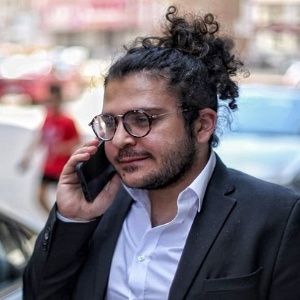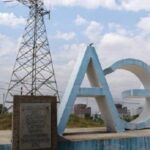
Egypt’s president Abdul Fattah Al-Sissi pardoned human rights activist and researcher Patrick Zaki and his lawyer, Moahmed el-Baqer, a day after Zaki was sentenced to three years in prison over an online article he wrote describing discrimination against Egypt’s Coptic Christian minority.
Related:
The courts impose sentences on Zaki in a national emergency situation, and although the state of emergency was lifted in 2021, the trials continue in these instances.
This implies, in addition to the harshness of the sentence, that the sentenced person cannot appeal. In compliance with these circumstances, he was arrested in the same court and transferred to prison.
Zaki is an activist and works as a researcher for the Egyptian Initiative for Personal Rights (EIPR).
Prosecutors eventually charged him with “spreading false news inside and outside the country,” based on an opinion piece published on the Daraj news website in July 2019.
The EIPR said the article described his experiences as a Coptic Egyptian and his views on events affecting the religious minority. In his article, Zaki referred to the marginalization suffered by the Christian minority to which he belongs. Copts represent 10 percent of the Egyptian population.
Since 2021, the human rights activist had been waiting for this trial to be held, which was handed down last Tuesday, but before that, he had spent a year and a half in prison, where he reported being tortured.
The Christian militant was studying for an international master’s degree in gender studies in Bologna. Returning to Egypt on vacation, on February 7, 2020, he was arrested at the same Cairo airport.
The Egyptian state accused him of spreading false news, inciting illegal protests, committing an act of terrorism, and other charges.
The jury session that accuses him of three years’ imprisonment is the end of a series of delays and postponements that turned it into a lethargic process and true torture for the defendant.
Within this context and since then, Zaki’s colleagues in Bologna and the academic institution have given him their support. The protests spread from university groups to popular sectors, impacting Italian public opinion so much that the Italian government would eventually grant him citizenship.
After the pardon of the Egyptian president, Italy’s Prime Minister Giorgia Meloni said in a video message that Mr. Zaki would return there on Thursday. She also wished him “a life of serenity and success” and thanked President Sisi “for this very important act.”
The tweet reads, “The President of the Council of Ministers of the Italian Republic, Giorgia Meloni, today held a telephone conversation with the President of Egypt, Abdul Fattah Al-Sissi, in particular to thank him for the pardon granted to Patrick Zaki.”
Until 2020, Zaki was active in the defense of LGBTIQ rights and the social rights of the different minorities that make up Egyptian society. His activism involved making visible the conditions of social and religious life suffered by the Copts, the Christian minority to which he belongs.
Egyptian Christian activists have been reporting for many years that Copts suffer systematic discrimination and the existence of limitations and prohibitions to carry out their religious practices.
According to the human rights council, the indicators of violations of these rights under the government of Abdel Fatah Al Sisi have reached higher levels than those that occurred under the government of Hosni Mubarak.
Zaki perhaps represents the face of a much broader phenomenon, which has placed Egypt among the countries with the least academic freedom internationally.



